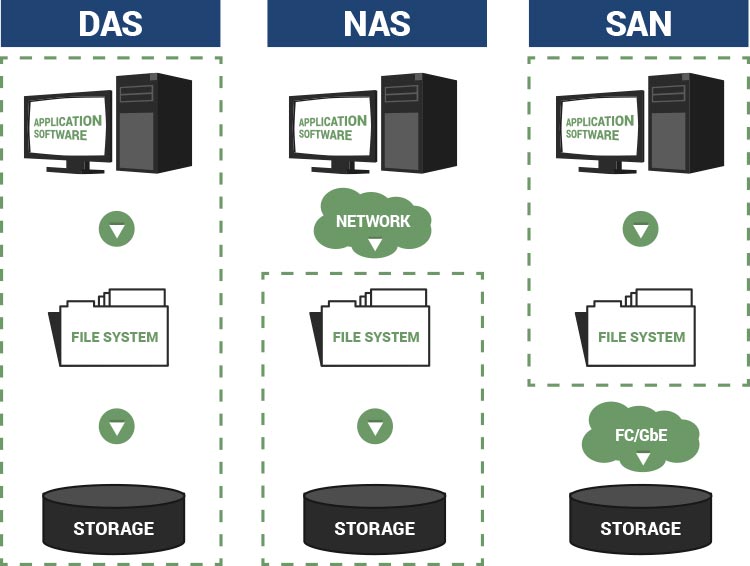In this article on VPS vs cloud hosting, we will look at what each one is, the advantages and disadvantages, factors to consider when looking at VPS vs. cloud performance, and how to make the right choice.
What Is VPS Hosting?
If you opt for a VPS, also known as a virtual private server, you’ll be given a space on a single server, but rather than have it all to yourself, the server is partitioned into virtual spaces, each one operating independently, with its own operating system, resources, and settings. This lets you have a high level of control and flexibility.
Advantages
One of the main VPS hosting advantages is the balance it strikes between shared hosting and dedicated hosting. Compared to shared hosting, VPS hosting offers more resources and better performance. Since each virtual server is allocated a dedicated portion of the physical server’s resources, such as CPU, RAM, and storage, you’ll get more stability. This is particularly beneficial for websites that have higher traffic or use resource-intensive applications. You will also enjoy a higher level of control and customization if you opt for VPS hosting. Users have root access to their virtual server, allowing them to install custom software, configure server settings, and manage their environment according to their specific requirements. This flexibility is useful for developers and businesses with unique hosting needs. If VPS security measures matter to you – and they should! – VPS hosting is better compared to shared hosting. Since each virtual server is isolated from others, any security issues or breaches on one virtual server do not affect the others. This isolation also stops neighboring websites from consuming excessive resources and impacting the performance of other sites on the same physical server.

Disadvantages
It isn’t all amazing, as VPS hosting has some disadvantages. One of the main drawbacks is that it is more expensive than shared hosting. As users have dedicated resources and more control, VPS hosting plans cost more than shared hosting or cloud hosting plans. This may not be cost-effective for small websites or those with limited budgets.
Another potential disadvantage is that you need some technical knowledge to manage a VPS. While you have more control over the server environment, you are also responsible for server management tasks such as software updates, security patches, and server configurations. This requires a certain level of technical expertise, which may be challenging if you don’t have prior server management experience.
Lastly, while VPS hosting offers better performance than cloud hosting or shared hosting, there are still limitations compared to dedicated hosting. In a VPS environment, the physical server’s resources are still shared among multiple virtual servers. If one virtual server experiences a surge in resource usage, it can still impact the performance of other virtual servers on the same physical machine, although to a lesser extent than in shared hosting.
What is Cloud Hosting?
Cloud hosting uses a network of interconnected servers to host websites and applications. Resources are distributed across multiple servers, creating a virtual pool of computing power, storage, and memory. This distributed approach offers several advantages but also comes with some potential drawbacks.
Advantages
One of the primary advantages is cloud hosting scalability. With traditional hosting, scaling resources to accommodate increased traffic or demand can be challenging and time-consuming. In contrast, cloud hosting allows for seamless and instant scaling. As the website or application requires more resources, the cloud infrastructure automatically allocates additional computing power, storage, or memory from the virtual pool. This elasticity ensures that websites can handle sudden spikes in traffic without experiencing downtime or performance issues.
Another advantage of cloud hosting is its high availability and reliability. Since the hosting environment is distributed across multiple servers, if one server experiences a failure or goes offline, the other servers can take over and continue serving the website or application. This redundancy minimizes the risk of downtime and ensures that websites remain accessible to users. Cloud hosting providers typically offer robust infrastructure with built-in failover mechanisms and data replication to enhance availability.
Cost efficiency is an important benefit of cloud hosting. With traditional hosting, users often have to invest in expensive hardware and pay for resources they may not fully utilize. Cloud hosting, on the other hand, follows a pay-as-you-go model. Users only pay for the resources they actually consume, such as CPU usage, storage, and bandwidth. This allows for better cost optimization, as users can scale resources up or down based on their needs, avoiding the need to overprovision and waste resources.
Disadvantages
One potential drawback of cloud hosting is the reliance on internet connectivity. Since cloud hosting relies on remote servers accessed over the internet, a stable and fast internet connection is essential. If the internet connection is slow or unreliable, it can impact the performance and accessibility of the hosted websites or applications. This dependency on internet connectivity may not be suitable for certain scenarios or locations with limited internet infrastructure.
Another disadvantage is the potential for vendor lock-in. When using cloud hosting, users often become dependent on the specific cloud provider’s infrastructure, tools, and services. Migrating to a different cloud provider or moving back to traditional hosting can be complex and time-consuming. This lock-in effect can limit flexibility and make it challenging to switch providers if the need arises.
Data security and privacy concerns are important cloud hosting features to consider. Since data is stored on remote servers managed by the cloud provider, users must trust the provider to implement robust security measures and protect their data from unauthorized access or breaches. While reputable cloud hosting providers invest heavily in security, there is still a level of risk involved in entrusting sensitive data to a third party.
Factors to Consider in Choosing Between VPS and Shared Hosting
1. Security Measures:
-
- VPS hosting provides better security compared to shared hosting.
-
- Shared hosting involves multiple websites sharing the same server resources. If one website is compromised, it can potentially impact the security of other websites on the same server.
2. Cost Analysis
-
- Shared hosting is generally more affordable than VPS hosting.
-
- VPS hosting is more expensive than shared hosting due to the dedicated resources and enhanced performance it offers.
3.. Scalability and Flexibility:
-
- VPS hosting offers greater scalability compared to shared hosting.
-
- Shared hosting has limited scalability options.
4. Performance and Resource Allocation:
-
- VPS hosting provides dedicated resources to each virtual server, ensuring better performance and stability.
-
- In shared hosting, the server resources are shared among multiple websites.
5. Control and Customization:
-
- VPS hosting offers a high level of control and customization.
-
- Shared hosting provides limited control and customization options.
6. Technical Expertise:
-
- VPS hosting requires more technical knowledge compared to shared hosting.
-
- Shared hosting is more beginner-friendly and requires minimal technical expertise.
When choosing between VPS and shared hosting, consider your website’s specific needs, budget, scalability requirements, and technical capabilities. If you have a small website with low to moderate traffic and limited resources, shared hosting may be sufficient. However, if you require better performance, security, and flexibility, and have the technical skills to manage a server environment, VPS hosting would be a more suitable choice.

Which One to Choose
When selecting a hosting solution for your website or application, it’s essential to match the hosting type with your specific needs to ensure optimal performance, security, and cost-effectiveness.
Here are a few scenarios and the recommended hosting solutions:
1. Small personal websites or blogs:
Shared hosting is often sufficient for small websites with low to moderate traffic.
2. E-commerce websites:
VPS hosting or cloud hosting is recommended for e-commerce websites that require higher performance, security, and reliability.
3. High-traffic websites or resource-intensive applications:
Dedicated hosting or high-performance VPS hosting is suitable for websites with high traffic volumes or resource-intensive applications.
4. Websites with unpredictable traffic spikes:
Cloud hosting is ideal for websites that experience sudden traffic spikes or have unpredictable resource requirements.
5. Websites with custom server requirements:
VPS hosting or dedicated hosting is recommended for websites that require custom server configurations, specific software installations, or unique security measures.
When choosing a hosting solution, consider factors such as your website’s traffic volume, performance requirements, security needs, scalability, and budget.
FAQs
Is one hosting option more cost-effective than the other?
Shared hosting is generally the most cost-effective option, especially for small websites with low to moderate traffic. VPS hosting is more expensive than shared hosting but offers dedicated resources and better performance, while cloud hosting follows a pay-as-you-go model, allowing for cost optimization based on actual resource consumption.
Which is more scalable, VPS or Cloud Hosting?
Cloud hosting is more scalable than VPS hosting. Cloud hosting allows for instant and seamless scaling of resources, automatically allocating additional computing power, storage, or memory as needed. VPS hosting offers some scalability by allowing users to upgrade their plan or allocate more resources, but it may require manual intervention and has limitations compared to the elasticity of cloud hosting.
How does performance differ between VPS and Cloud Hosting?
Both VPS and cloud hosting offer good performance compared to shared hosting. VPS hosting provides dedicated resources, ensuring consistent performance and minimizing the impact of other websites on the same physical server. Cloud hosting, with its distributed architecture and ability to scale resources on demand, can offer even better performance and handle sudden traffic spikes more effectively.





